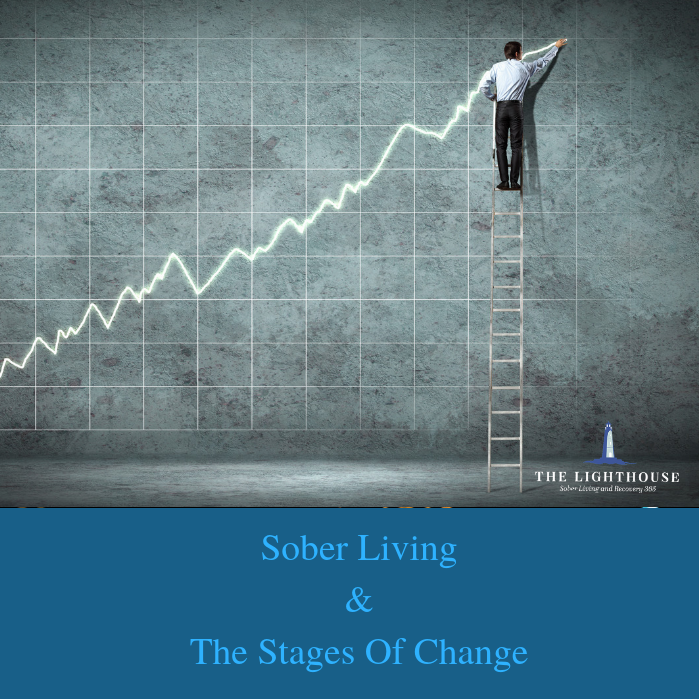Sober Living & The Stages Of Change
When you choose to reside in a sober living residence, you might feel it’s your last effort to change unwanted behaviors. Maybe you’ve you struggled with the desire to quit drinking or drugging, increase motivation, decrease anxiety or depression or find a balance in life, but you cannot manage to make it happen?
It’s possible you’ve attempted to go to several inpatient treatment programs or managed to stay sober on your own only to relapse back to old patterns or behaviors.
Maybe you’ve attempted to change unwanted behaviors so many times that you feel another attempt is hopeless. Sober living is appealing, but can it help you make the changes you so desperately seek in life?
Yes, it can.
There is always hope, and this is where the sober living and the stages of change can assist and support your efforts for change.
Sober living homes meet you where you are at in your recovery. Transitioning from detox or a treatment program into a sober living residence can help you overcome persistent obsessive behaviors. Sober living residencies motivate you to establish a personal pathway in recovery and always meeting you where you are at, in regards to your readiness for change.
The stages of change
If you’ve been around the recovery community for any amount of time, you’ve heard of the stages of change. For those new, to recovery and as a refresher for those who have been around recovery for some time, I’ll outline and explain you naturally progress through these stages of change.
James Prochaska initially developed the stages of change approach as a way to outline the natural progression you’ll progress through as you change unwanted behaviors. The recovery community embraces the stages of change modality because it is a less confrontational approach and more accepting of a person’s readiness to change.
1-Precontemplation
You are in precontemplation when you are not ready to change behaviors because you are not even aware there is a problem with your relationship with alcohol or drugs is the source of your questions. When you are in precontemplation, denial is often clouding your vision to the reality of the problem.
Precontemplation starts this cycle of change. Dr. DiClemente, a colleague of Prochaska, referred to the behavior exhibited during precontemplation as
“the 4 R’s, “ which include:
-
Reluctance is when you lack knowledge of problematic behavior. It is challenging to contemplate change when you are not aware of the need to change.
-
Rebellious drinkers are those who drink without worrying about outcomes because they view alcohol or drugs as a solution, not the problem.
-
Resigned precontemplation is when you have suspected alcohol to be a problem. You have grown overwhelmed and made several efforts to stop drinking in the past. Each attempt at change was unsuccessful, causing the loss of hope of successful change.
-
Rationalization is a form of denial. It’s when you meet all criticism and confrontation with reasons to explain away why you are sure alcohol is not the problem. Drinking might be a problem for other colleagues and friends, but you have a handle on this situation.
Read through and answer these questions:
Do you blame others for adverse outcomes?
Do you become defensive, argumentative or resistant to comments about your behavior?
Are you angered when others suggest your relationship to alcohol or drugs is dysfunctional?
At one time in your addiction you would have answered yes to these questions, but as you move through the stages of change, you can draw connections to numerous negative outcomes and behaviors you need to change, specifically your relationship to alcohol and other drugs.
During precontemplation, the usual route into detox, treatment, or sober living residencies is via court order or coercion from loved ones, work, or school. Even though you might fit into one of “the 4 R’s,” you are not hopeless. Supportive settings enable your readiness to change by removing barriers which previously clouded your vision.
Residing in a sober living home will help you move through pre-contemplation by providing information and resources to help you understand your need for change.
2. Contemplation
The progression to contemplation happens when you start to accept that negative results occur because of specific behaviors. You are willing to discuss your behavior, relationship to alcohol and drugs objectively. Your denial has lessened, yet you have not created a plan for change. The change you are planning could be months or years away.
In the contemplation stage, you have recognized the problem, but you have not decided to act. Even though you have not officially planned change you have taken some action, maybe you have gone to one or two meetings, went to a treatment programs website, researched several sober living homes, or met with a recovery coach.
3. Preparation
Preparation is the stage when you start to put together a plan of action. You’re ready to begin changing the behaviors, attitudes, and irrational beliefs which cause you to obsess for alcohol or drugs.
During the preparation stage, it is typical to begin seeking a support network and enlist the service of a recovery coach to guide you through your process.
While in the contemplation stage you researched treatment programs, sober living residences, and other different pathways for recovery without ever planning actually to call an intake counselor. In the preparation stage, you are readying to take action. You will now start reaching out to these programs to learn about cost, modalities, and preparing a plan for action to begin within the next 30 days.
Residing in a sober living home will assist you through preparation into action by helping you determine an individual path for you to follow.
During your intake process you’ll learn the resources available to you on site and community services including but not limited too:
-
outpatient treatment
-
recovery coaching
-
peer advocates
-
mental health counseling
-
primary care
-
12 step meetings
-
SMART recovery
-
exercise and fitness
-
Spiritual pursuits
Once your preparations have been set it’s time to move on to the next stage of change.
4. Action
In the action stage, you are putting forth the energy and effort to change disruptive behaviors. You are mindful and dispute irrational thoughts and negative self-talk. You have become aware of the situations and persons dangerous to your recovery. You participate and engage with your individualized pathway for recovery.
The observable changes made during the action stage enable you to build upon your goals. You feel better about yourself and your decisions. You will readily handle cravings and various stressors using the coping strategies and other mechanisms put in place.
Another critical component during the action stage of change is publicly stating your goals for change. The monitoring of family and loved ones creates security and reward. As you begin to accomplish your goals, it feels good to have others offer praise. When you’re noticeably struggling to know you have outside support to lean upon is reassuring.
When you chose to reside in an environment which supports sober living your accomplishments and failures are public, but those witnessing your change are working through the stages along with you. This mutual aid and camaraderie are beneficial to your success. Nothing beats the feeling of successfully achieving goals. The sense of victory alone will aid to your commitment to change.
The action stage can take anywhere from 6 months to a year, and as you persevere, it becomes easier to maintain.
5. Maintenance
After your goal for change has been realized you learn to manage the desired behavior. Once you have lived without the need to use alcohol or other drugs the threat of returning to past behaviors becomes less fearful. You will have replaced old negative and unwanted behaviors with new positive routines which help you to maintain.
In maintenance, you begin to lessen the frequency of your participation with the resources which enabled your recovery. At this time you will leave a sober living home and return to living alone or with family, and you’ll meet less frequently with your recovery coach, sponsor or mentor. Many find giving back to the recovery community to be reciprocal in nature. Becoming a sponsor or recovery coach helps them to keep recovery fresh and relevant in their life. Advocating for change and supporting others in need solidifies their path in recovery.
The feeling of success is greatest during maintenance. It is vital to remember to continue to practice the routines which aided to your victory. In maintenance, you have learned relapse prevention skills and know how to use sober support when needed. Still, recycle, or relapse can happen during any stage of change.
Recycle and Relapse
Stress, trauma, dangerous situations, or becoming lackadaisical in your routine can cause you to regress to old behaviors. Sometimes a slip happens when you feel the need to test yourself and your recovery. Relapsing back into the active use of alcohol or drugs will strengthen the determination to achieve the feeling of success in sobriety.
The stages of change and you
With your new understanding of the stages of change, you should be able to outline and see the progression of your progress in recovery. It is vital to keep in mind that yo progress forward or regress to past changes at your own pace. It is not uncommon for people to take years to progress from one stage to the next.
When you reach the action stage and fail to meet your goal you are recycled back to an earlier stage. Do not lose hope, if you have recycled back to precontemplation, contemplation, or preparation, strive to persevere because you are more likely to succeed through to maintenance because you are better prepared to make the change.
Residing in a sober living home which respects your readiness to change can ease your journey through the stages of change because staff and sober peers will assist you in finding your individual path in recovery.



